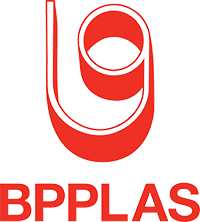BP Plastics faces challenging times
PETALING JAYA: Competition in the stretch film space has intensified, especially in export markets, and that is affecting BP Plastics Holding Bhd’s earnings.
The company saw a 19.9% quarter-on-quarter (q-o-q) drop in its third quarter of 2022 (3Q22) sales.
CGS-CIMB Research has thus cut BP Plastics’ financial year (FY) 2022 to 2024 earnings per share (EPS) by 17 to 22% on the back of a lower average selling price (ASP) and year-on-year (y-o-y) volume growth.
It said that while BP Plastics is in the midst of expanding its capacity, it may take some time for the group to use the additional capacity in the current economic climate.
Kenanga Research cut its FY22 net profit for BP Plastics by 22%, largely to reflect the higher input and labour costs the company is experiencing.
It also reduced the packaging company’s net profit for FY23 by 15% to reflect a reduction in utilisation to 60% to 65% (from 65% to 70%) and the resulting higher unit cost as a result of lower export demand due to the global economic slowdown.
Apart from the commissioning of its 10th cast stretch film line in 4Q22 to add more capacity, CGS-CIMB Research said BP Plastics is also buying two co-extrusion blown film machines for about RM19mil to expand production of specific blown PE film products such as shrink film, stretch hood and lamination film.
“The machines are expected to be operational by the end of FY23, with the first contributions made in FY24” it said.
BP Plastics’ nine-month 2022 core net profit came in at RM24.6mil.
With the margin squeeze, its core net profit contracted by 28.8% year-on-year (y-o-y).
CGS-CIMB Research said the lower y-o-y nine-month earnings resulted in BP Plastics declaring a third interim dividend per share (DPS) of 1 sen.
The year-to-date DPS is four sen, which puts the house’s expectation of a six-sen DPS for FY22 at risk of not being met.
CGS-CIMB Research has also lowered its target price (TP) for BP Plastics to RM1.34 a share and retained its “hold” stand on the stock.
It cited upside risks of a spike in sales and higher dividends, while the downside risks were a sharper than expected fall in FY23–FY24 sales.
Kenanga Research downgraded its stock call to “market perform” with a TP of RM1.38 a share.
Despite this, it likes BP Plastics because of its strong presence in the South-East Asian market, which is expected to remain resilient despite the global economic downturn, and because the company’s strong cash flow and balance sheet (a net cash position) will allow it to weather a downturn better.
Kenanga Research also favoured BP Plastics for its long-term capacity expansion in high-margin premium stretch film and blown film products, which will enable the company to capitalise on the next upcycle.
